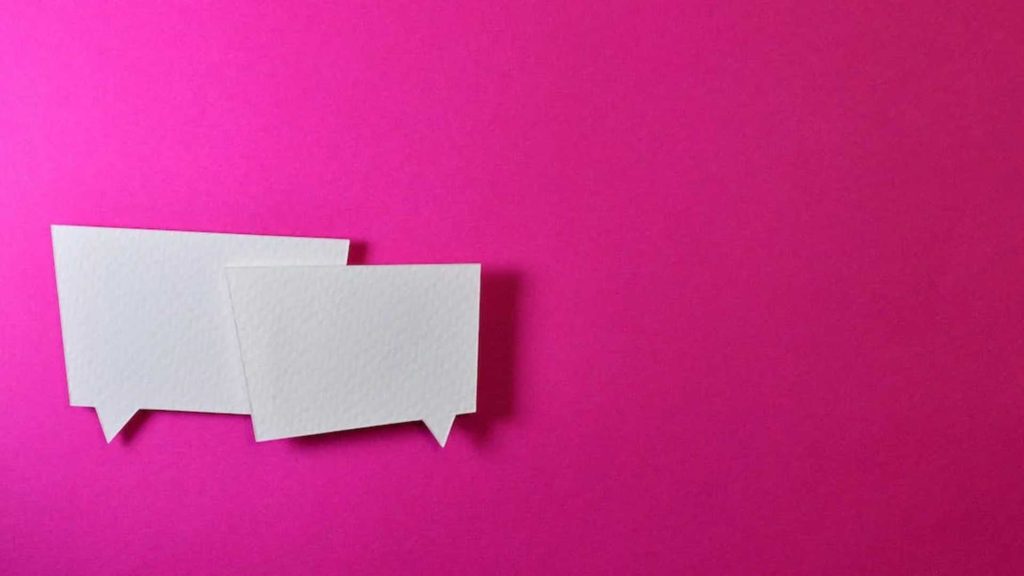Are you searching for many ways to convey your willingness to lend a hand with a smile? Look no further! In this captivating exploration, we will dig into a treasure trove of alternatives and synonyms for “happy to help,” empowering you with an array of linguistic gems to express your eagerness and genuine desire to assist others.
Whether you’re a writer seeking to infuse your characters with unique personalities or an individual aiming to enhance your everyday conversations, the synonyms for happy to help will become invaluable tools in your linguistic arsenal. So, let’s embark on this enlightening journey and uncover a world of delightful expressions that will leave you positively brimming with goodwill!
Why Does Happy to Help Sound Bad?

The phrase “happy to help” may seem innocuous at first glance, but upon closer examination, its shortcomings become apparent. While it conveys a positive sentiment, its overuse and lack of depth can make it sound insincere or clichéd. The problem lies in its simplicity, as it fails to capture the true essence of genuine assistance or convey a nuanced understanding of the recipient’s needs.
Furthermore, its ubiquity in customer service interactions and automated responses has contributed to its diminished impact and, consequently, its negative connotation. In a world where authenticity and personalization are valued, “happy to help” can come across as a robotic and impersonal response.
To establish a stronger connection with others, embracing alternative phrases or synonyms that exhibit a deeper level of empathy, understanding, and a genuine desire to assist is crucial. By exploring more nuanced expressions, we can avoid the pitfalls of sounding trite or disingenuous and truly make a positive difference in our interactions with others.
Reasons to Use Synonyms for Happy to Help

There are several compelling reasons to utilize synonyms for “happy to help” in your communication. Here are a few key benefits:
Avoiding clichés
The phrase “happy to help” has become commonplace and can sound generic or insincere when used frequently. By using synonyms, you can avoid falling into the trap of using overused phrases, allowing your communication to feel more fresh, authentic, and tailored to the situation.
Adding depth and nuance
These synonyms provide an opportunity to convey a deeper level of understanding, empathy, and enthusiasm. They allow you to express your willingness to assist in a more nuanced way, reflecting a genuine desire to make a positive impact and meet the specific needs of the person seeking help.
Personalizing your communication
Different situations call for different approaches. By using synonyms, you can tailor your response to match the specific context and individual. This personalization demonstrates attentiveness and enhances the overall quality of your communication.
Showcasing versatility
Expanding your vocabulary with synonyms for “happy to help” showcases your linguistic versatility and demonstrates your ability to adapt and communicate effectively in various scenarios. It highlights your skill in choosing the most appropriate expression based on the context and the relationship you have with the person you’re assisting.
Creating memorable interactions
Utilizing alternative expressions can leave a lasting impression on others. When you choose unique and thoughtful synonyms, it shows that you have put effort into your communication and genuinely care about providing meaningful support. This can enhance your professional reputation, strengthen personal relationships, and foster positive connections.
Reflecting professionalism
In certain professional settings, using synonyms for “happy to help” can project a more polished and sophisticated image. It demonstrates your command of the language, attention to detail, and dedication to delivering exceptional service or support.
By incorporating synonyms for happy to help into your communication, you can elevate your interactions, foster genuine connections, and provide more meaningful support. The use of alternative expressions showcases your linguistic prowess, personalizes your responses, and demonstrates your commitment to understanding and addressing the unique needs of others.
9 Ideal Alternatives and Synonyms for Happy to Help

When it comes to expressing your willingness to assist others, there is a rich tapestry of words and phrases that can go beyond the clichéd “happy to help.” These alternatives not only convey a genuine desire to lend a hand but also add depth and nuance to your interactions. Let’s explore ten ideal synonyms for happy to help that will elevate your communication and showcase your empathy.
Eager to Assist
The phrase “eager to assist” conveys a sense of enthusiasm and genuine interest in aiding others. It demonstrates your proactive nature and willingness to go above and beyond to provide support.
Delighted to Offer Aid
“Delighted to offer aid” expresses genuine joy in being able to help someone. It conveys a sense of pleasure and satisfaction derived from assisting, emphasizing your dedication to making a positive impact.
Willing and Ready
This concise phrase captures your immediate availability and willingness to step up when needed. It communicates your readiness to lend a hand without hesitation, instilling confidence in the person seeking help.
Enthusiastic to Serve
When you’re “enthusiastic to serve,” you showcase your passion and commitment to meeting the needs of others. This synonym conveys a sense of dedication and a genuine desire to exceed expectations.
Here to Support You
By stating that you’re “here to support you,” you establish a sense of reliability and dependability. This phrase reassures others that you are present and committed to providing the necessary assistance they require.
Committed to Assisting
“Committed to assisting” conveys a strong sense of dedication and steadfastness in offering help. It emphasizes your unwavering commitment to seeing the task through and ensuring the person in need receives the support they require.
Ready to lend a Helping Hand
This synonym is a classic expression that signifies your immediate readiness to offer assistance. It communicates your willingness to extend a helping hand, emphasizing your reliability and willingness to go the extra mile.
Excited to Aid You
By expressing that you’re “excited to aid you,” you convey a genuine sense of enthusiasm and positivity. This synonym highlights your eagerness to make a difference and contribute to the well-being of others.
Happy to be of Service
Similar to the original phrase, “happy to be of service” maintains a sense of joy and willingness to assist. However, by using this alternative, you add a touch of formality and politeness, making it a suitable choice for professional interactions.
Bonus Alternative To “Happy To Help”
Dedicated to Your Needs
This synonym focuses squarely on the needs of the person seeking assistance. By stating that you’re “dedicated to their needs,” you communicate your commitment to understanding and fulfilling their specific requirements, showcasing your attentiveness and empathy.
Incorporating these ten ideal synonyms for happy to help into your vocabulary allows you to infuse your interactions with authenticity, depth, and empathy. By utilizing these alternatives, you not only showcase your willingness to assist but also demonstrate a keen understanding of the importance of personalization and individual needs. So, next time you find yourself in a position to provide support, embrace these synonyms and watch as your communication becomes more meaningful and impactful.
How to Stop Saying Happy to Help?

Breaking the habit of using the phrase “happy to help” can be a conscious effort that requires mindfulness and a commitment to expanding your communication repertoire. Here are a few strategies to help you stop saying “happy to help”:
Reflect on your intentions
Consider why you default to using “happy to help.” Are you genuinely expressing your willingness to assist, or is it a reflexive response? Understanding your motivations will help you make a conscious effort to find alternative expressions.
Expand your vocabulary
Familiarize yourself with a variety of synonyms and phrases that convey a genuine desire to assist. This will enable you to choose more appropriate and meaningful responses based on the situation and the individual’s needs.
Practice active listening
Pay attention to the specific needs and concerns of the person seeking help. Engage in active listening to understand their requirements fully. This will allow you to respond with personalized and tailored expressions of support.
Use specific language
Instead of relying on generic phrases, be specific about how to assist. Offer concrete actions, suggestions, or resources that are relevant to the situation. This demonstrates a deeper level of understanding and commitment to providing meaningful help.
Adopt alternative expressions
Familiarize yourself with alternative phrases that convey empathy, readiness, and enthusiasm to help. Some examples include “I’m here for you,” “I’m ready to assist,” or “How may I be of service?” Experiment with different expressions and find the ones that resonate with your style and intentions.
Practice role-playing
Engage in role-playing exercises or scenarios where you actively avoid using “happy to help” and instead employ alternative expressions. This will help you build confidence and reinforce new communication habits.
Seek feedback
Ask for feedback from trusted colleagues, friends, or family members regarding your communication style. Request that they point out instances where you default to using “happy to help” so that you can correct it and expand your linguistic repertoire.
Be authentic and sincere
Ultimately, the goal is to express your willingness to assist in a genuine and sincere manner. Focus on building meaningful connections and offering support that aligns with your values and the needs of others. Authenticity goes a long way in creating impactful interactions.
Remember, breaking any habit takes time and effort. Be patient with yourself as you work on expanding your communication skills. With practice and conscious effort, you will gradually replace “happy to help” with more thoughtful and personalized expressions that truly convey your genuine desire to assist others.
Final Words
In conclusion, embracing synonyms for happy to help offers numerous advantages in our communication. By moving away from clichéd expressions and adopting alternative phrases, we can infuse our interactions with authenticity, depth, and personalization. Utilizing synonyms allows us to convey a genuine desire to assist, showcase versatility, and create memorable connections. It also encourages active listening and demonstrates professionalism.
So, let us break free from the limitations of repetitive language and explore the rich tapestry of synonyms available to us. By doing so, we can transform our willingness to help into meaningful and impactful expressions that truly reflect our empathy, understanding, and commitment to supporting others.
Frequently Asked Questions (FAQs)
Are there situations where using the original phrase “happy to help” is still appropriate?
Yes, there may be instances where simplicity and familiarity are preferred, such as in casual conversations or when maintaining a casual tone. However, even in these situations, it is beneficial to have a repertoire of alternative expressions to choose from.
Is it necessary to memorize all the synonyms for “happy to help”?
Memorization is not required. Instead, focus on understanding the different nuances and connotations of various synonyms. Familiarize yourself with various alternatives and practice incorporating them into your communication over time.
How can I ensure that my chosen synonym is appropriate for the situation?
Consider the context, relationship, and tone of the conversation. Evaluate the specific needs of the person seeking help and choose a synonym that aligns with those requirements. It’s always helpful to observe how others respond to different expressions and learn from their examples.
What if I’m unsure about which synonym to use?
When in doubt, active listening and empathy can guide you. Pay attention to the person’s needs and concerns, and select a synonym that reflects your genuine understanding and willingness to support them.
Can using synonyms for “happy to help” improve my professional image?
Yes, utilizing a diverse range of expressions demonstrates your linguistic prowess, attention to detail, and dedication to effective communication. It can enhance your professional reputation and foster positive relationships in various professional settings.
Start Your Free Trial Today!
Find out how easy it is to improve your customer support and save time for FREE!